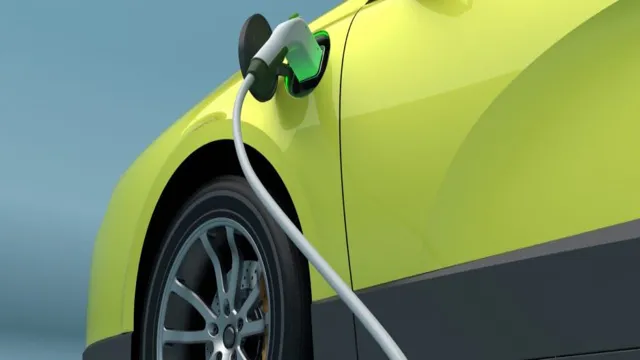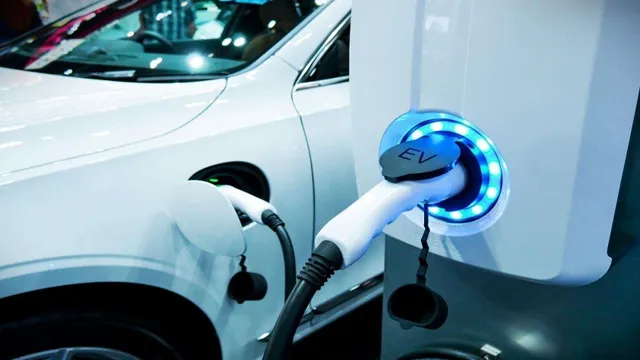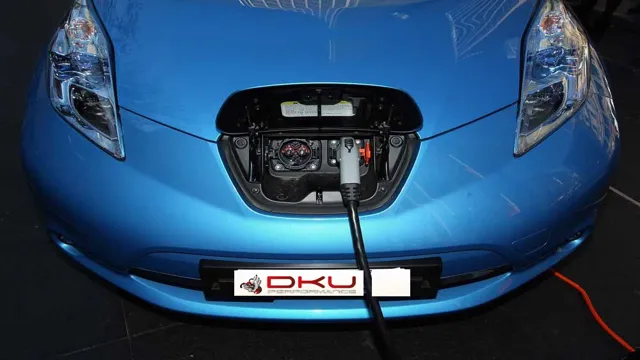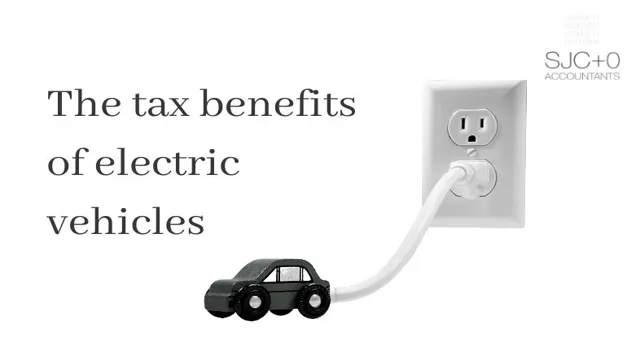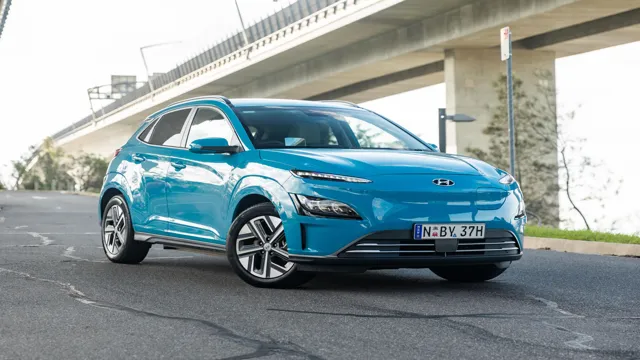Electric Cars: Saving Money and the Environment through Tax Benefits
Did you know that owning an electric car could potentially save you thousands of dollars in taxes? With the increasing focus on environmental sustainability, there has been a surge in the popularity of electric cars. Aside from their environmental benefits, electric cars provide significant tax benefits that many consumers are not aware of. In this blog, we will delve into the tax benefits of owning an electric vehicle and how you can take advantage of them.
So, buckle up and let’s get started!
Federal Tax Credits
If you’re in the market for a new car, there are many benefits to considering an electric option. One of the biggest perks is the tax benefits of owning an electric car. The federal government offers tax credits to encourage people to purchase electric cars and help reduce emissions.
For example, you may be eligible for a tax credit of up to $7,500 on your federal tax return. However, the amount of the credit depends on the make and model of the car you choose. The tax credit begins to phase out once the manufacturer has sold a certain number of electric vehicles, so it’s important to keep that in mind when considering your options.
Additionally, some states also offer their own tax incentives for electric car owners. Overall, considering the tax benefits of owning an electric car can help make the decision a little easier and more cost-effective in the long run.
Up to $7,500 in credit available to qualified buyers
If you’re looking to buy an electric vehicle, you may be eligible for a federal tax credit worth up to $7,500! This tax credit is available to qualified buyers and can significantly reduce the cost of your new EV. To qualify, your EV must meet certain criteria set by the federal government. These criteria include battery capacity and the vehicle’s maximum speed.
The amount of the tax credit you receive will depend on the make and model of your EV, as well as its battery capacity. The tax credit will also begin to phase out after a certain number of EVs have been sold by each automaker. The federal tax credit for EVs is a great way to reduce the cost of your new car while also doing your part for the environment.
With electric cars becoming more and more popular, it’s important to take advantage of all the benefits that come with owning one. Not only will you be reducing your carbon footprint, but you’ll also be saving money on gas and maintenance costs in the long run. If you’re interested in purchasing an electric vehicle, be sure to do your research and find out if you’re eligible for the federal tax credit.
With up to $7,500 in credit available, it’s definitely worth checking out!
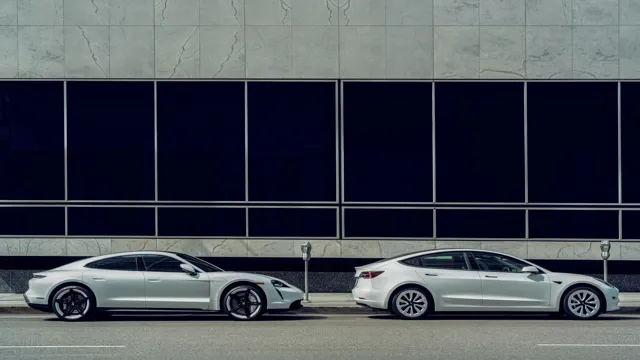
Credit phases out once manufacturers sell 200,000 qualifying vehicles
Federal Tax Credits. Are you considering buying an electric vehicle? One of the benefits to owning one is the federal tax credit offered by the government. However, it’s important to note that the credit starts to phase out once manufacturers sell 200,000 qualifying vehicles.
This means that if you’re thinking about buying a Tesla or General Motors EV, you may not be eligible for the full tax credit amount. The phase-out period typically starts a few quarters after the manufacturer hits the 200,000 mark, so it’s important to check the current eligibility before making your purchase. While it’s disappointing that the tax credit decreases over time, it’s worth noting that the credit can still provide a significant financial benefit to EV owners if they qualify.
So not all hope is lost if you miss out on the full credit amount. Keep in mind that there are also state-specific incentives, such as rebates and exemptions, that can help offset the cost of purchasing an electric vehicle.
State and Local Incentives
When it comes to purchasing an electric car, there are a multitude of benefits to take advantage of, including various state and local incentives that can save you a significant amount of money. One of the most enticing incentives is tax benefits. Many states offer tax credits and exemptions for electric vehicle (EV) purchases, which can help reduce the overall cost of the vehicle.
In addition to state incentives, some cities and municipalities offer their own incentives, such as free parking or access to HOV lanes. It’s important to research the specific incentives available in your area to determine which ones you may qualify for. By taking advantage of these incentives, you can not only save money on your EV but also contribute to a greener, more sustainable future.
States offer rebates ranging from $1,500 to $5,000
State and local incentives are a great way to save money when purchasing an electric vehicle. Many states offer rebates that range from $1,500 to $5,000, which can really add up. These incentives are designed to make purchasing an electric vehicle more affordable for everyone.
They are offered in states across the country and are meant to help individuals and businesses make the transition to cleaner, more sustainable transportation. If you are interested in purchasing an electric vehicle, it is worth looking into what incentives are available in your state. Not only will you be doing your part to help the environment, but you will also be saving money in the process.
So, why not take advantage of these incentives and make the switch to an electric vehicle today?
Some localities offer reduced or free parking and access to HOV lanes
State and local incentives can make a significant difference in reducing transportation expenses for commuters. Some cities and states offer reduced or free parking for carpoolers or those driving fuel-efficient vehicles. In some cases, access to HOV (high occupancy vehicle) lanes is granted to those who carpool, which can significantly reduce commuting time.
These incentives not only make commuting more affordable, but they also reduce traffic congestion and promote sustainability in transportation. If you’re looking to save money and reduce your carbon footprint, check with your local government to see what transit incentives are available to you. You might be pleasantly surprised at the options available to make your commute more manageable.
Carpooling is an excellent option and can save you money, reduce pollution, and help you arrive at work less stressed. So next time you’re planning your commute, consider exploring the incentives offered to commuters in your area for a more cost-effective and eco-friendly way of getting to work.
Lower Operating Costs
One of the biggest advantages of owning an electric car is the tax benefits, which can help lower your operating costs. Federal tax credits can be earned by people who buy electric cars, which can reduce their overall tax liability. The amount of credit you receive is dependent on the type of car, its battery capacity, and the manufacturer.
Additionally, some states offer their own incentives in the form of tax credits or rebates, which can further reduce the cost of a new electric car. In addition to the upfront savings, electric cars are cheaper to maintain than gas vehicles. With fewer moving parts and no oil changes, electric car owners save on routine maintenance costs as well as fuel costs.
Overall, owning an electric car can save you money in the long run while also helping the environment.
Electric cars require less maintenance and fuel than traditional cars
Electric cars are becoming increasingly popular due to the numerous benefits they offer, including lower operating costs. One of the significant advantages of electric vehicles is that they require less maintenance than traditional cars, meaning that owners have to spend less money and time on repairs and upkeep. Because electric cars have fewer moving parts, there is less wear and tear and fewer opportunities for things to go wrong.
This translates to lower maintenance costs, including brake and oil changes. Furthermore, electric cars are also less expensive to fuel, with the average cost per mile significantly lower than that of gasoline-powered cars. This means that over time, electric car owners can save a substantial amount of money in fuel costs.
The lower operating costs of electric cars are one of the primary reasons why more people are turning to these vehicles as a more sustainable and affordable mode of transportation.
Potential savings of $4,000 in fuel costs over five years
Lower Operating Costs Lower operating costs are a primary benefit of using fuel-efficient vehicles. These vehicles have the potential to save drivers thousands of dollars in fuel costs over the course of ownership, making them an excellent investment. According to studies, a fuel-efficient car can save up to $4,000 in fuel costs over five years when compared to a gas-guzzling vehicle.
That’s a significant amount of money that can be saved and used for other important expenses or leisure activities. Additionally, fuel-efficient cars typically require less maintenance, have longer lifespans, and can even save on insurance costs. In today’s economy where every penny counts, making the switch to a fuel-efficient vehicle is a no-brainer.
So, if you’re in the market for a new car, consider a fuel-efficient option and start saving on operating costs today!
Resale Value
Are you considering buying an electric car? One of the biggest advantages of owning an electric car is the tax benefits you can receive. As an electric car owner, you may qualify for federal and state tax credits, rebates, and other incentives. These tax benefits can help you save thousands of dollars on the cost of ownership and make it a wise investment in the long run.
Furthermore, electric cars have a higher resale value compared to traditional gas cars due to their low maintenance costs and eco-friendly nature. If you’re looking for a car that will not only save you money on gas but also provide you with tax benefits and high resale value, then consider investing in an electric car. It’s a decision that will pay off in the long run.
Electric cars retain higher resale value than traditional cars
When it comes to purchasing a vehicle, many people consider the resale value as an important factor. Investing in an electric car may be a wise decision as they tend to retain a higher resale value than traditional cars. This is due to the growing demand for eco-friendly and energy-efficient vehicles, making electric cars a more attractive option for potential buyers.
Additionally, electric cars have a longer lifespan than traditional cars, partly due to their simpler construction with fewer moving parts. This results in lower maintenance costs and higher reliability, further contributing to their higher resale value. So, if you’re looking for a vehicle that not only benefits the environment but also your finances in the long run, perhaps an electric car is worth considering.
Conclusion
In conclusion, the tax benefits of owning an electric car are truly electrifying! Not only will you save money on gas and maintenance costs, but you’ll also enjoy a variety of tax incentives from local, state, and federal governments. Plus, you can feel good about reducing your carbon footprint and doing your part to protect the planet. So don’t be shocked by the savings – switch to an electric car today and enjoy the benefits of a cleaner, greener ride!”
FAQs
What are the tax benefits of owning an electric car?
Electric car owners can receive a federal tax credit of up to $7,500. There may also be additional state and local tax incentives available.
Are there any tax benefits for businesses purchasing electric cars?
Yes, businesses can qualify for tax credits and deductions for purchasing electric cars for their fleet. The tax incentives are designed to encourage businesses to switch to electric vehicles.
How can I claim my electric car tax credits on my tax return?
To claim your electric car tax credits, you will need to complete IRS Form 8936 and attach it to your tax return. The credit will be applied to your tax liability.
Do all electric cars qualify for tax incentives?
No, not all electric cars qualify for tax incentives. To qualify for the federal tax credit, the electric car must be a new vehicle and have a battery capacity of at least 5kWh. State and local incentives may have different requirements.
